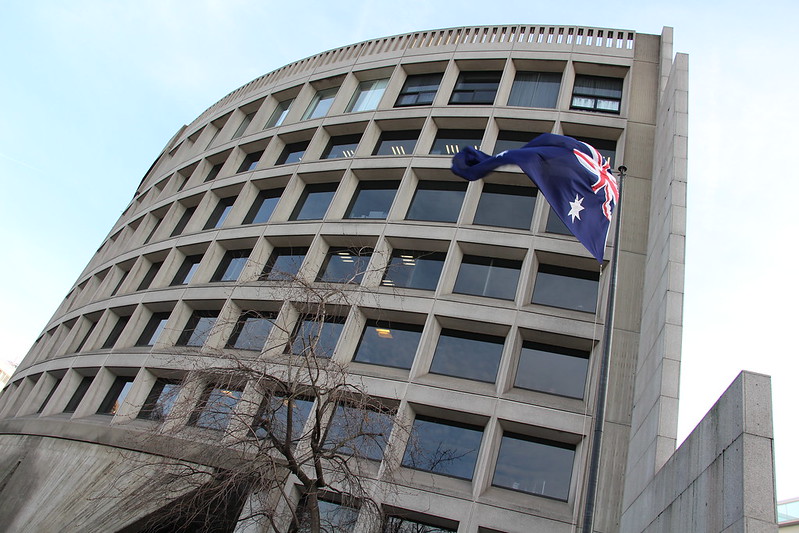
Australia’s diplomatic lapses in 2021 exposed our underappreciation of diplomacy and underinvestment in diplomatic capability.
Foreign policy and diplomacy are not the same. As I note in my new ASPI report, The costs of discounted diplomacy, AUKUS was a stark example of arguably good Australian foreign policy darkened by inarguably poor diplomacy. The decision to advocate for an international inquiry into the source of Covid-19 was sound policy, but to advocate unilaterally was unsound diplomacy.
Foreign policy is what states decide to do to cope with each other. Diplomacy is how they try to do what they have decided upon.
Diplomacy is hard, and even harder when you’re running out of luck.
For most of its modern history, Australia has been lucky. Our great and powerful friend—the United States—has been a global power, not one of several major powers. We haven’t had a free ride, but we’ve enjoyed a comparatively easy ride.
That friendship has also given us a privileged position in international order-building. Australia has understood the motivations, aspirations and modes of conduct of the US as it partly nurtured and partly imposed international order.
In addition, geographic good fortune and border controls have protected us from various threats, real and imagined.
Luck won’t play such a big part in Australia’s future, which will be influenced more by competing major powers, less by the US. The still substantial influence of the West on the international order will inevitably moderate. Emerging non-Western powers will insist on a bigger say.
Within the new multipolar world order, the US and China loom largest, but other nations have substantial economic, political, military and diplomatic power, or they are attaining it.
We’re likely to be safer, richer and more respected if we know how to listen to them and how to get them to listen to us, which is mainly the work of diplomats.
And border controls won’t protect us from foreign interference, trade disputes or climate change. When the luck of geography is not enough, most states turn to diplomacy.
Yet, no one should underestimate the role that deterrence, alliances and border controls will continue to play in the implementation of Australian foreign policy.
Equally, though, no one should underestimate the extent to which their prominence in Australian security thinking has pushed diplomacy into the shadows.
If governments had considered diplomacy critical to national security, for the past two decades they wouldn’t have reduced the operating budget for foreign policy and diplomatic work by the Department of Foreign Affairs and Trade by 9%, while massively (and sensibly) expanding the budgets for defence, intelligence and border control.
With this operating budget, DFAT decides, for example, how many people to employ and the individual budgets for posts overseas, divisions in Canberra and state offices in Australian capital cities, as well as budgets for public diplomacy, sponsored visits and training.
While cutting DFAT’s operating budget by 9%, governments increased the department’s budget for passport and consular services by 30% and its budget for physical infrastructure (property, security, ICT) by 39%.
Australia’s passport and consular services are among the best in the world because they are well resourced, and they put the safety of travelling Australians first. They are Qantas quality, and they should be kept at Qantas quality.
In contrast, Australia’s foreign policymaking and diplomacy are under-resourced, putting the security, prosperity and reputation of Australia at risk. On DFAT’s watery policy fuel, Qantas would struggle to get off the ground.
As with consular services, governments have taken seriously their responsibility to ensure that Australia’s overseas network has adequate physical infrastructure.
The issue here is the gap between the surging expenditure on infrastructure and the sagging expenditure on foreign policy and diplomacy. It rekindles memories of an episode of the British comedy Yes, Minister, in which the government has funded the construction and staffing of a hospital, but it has no patients.
DFAT’s shrinking operational budget has left many of our diplomatic posts with a permanently skeleton staff and insufficient funds to do their jobs, namely, tilt the international balance a little more in Australia’s favour.
If diplomacy is to become an integral part of national security, the government should prepare a comprehensive capability assessment for DFAT, followed by a financial plan to match capability needs.
DFAT’s budgetary problem won’t be fixed without political leadership and public support.
Securing public support is not easy. Foreign policy and diplomacy rarely impinge on the lives of most Australians, so they’re understandably indifferent to the state of DFAT’s budget.
Australians, though, support good public policy, and want it funded adequately, if they’re persuaded of its value.
That’s the job of political leaders, who are ultimately responsible for advancing the security, prosperity, reputation and self-respect of Australia.

